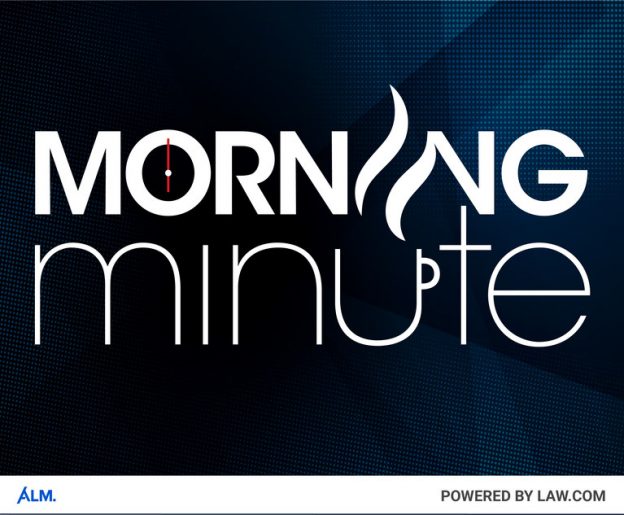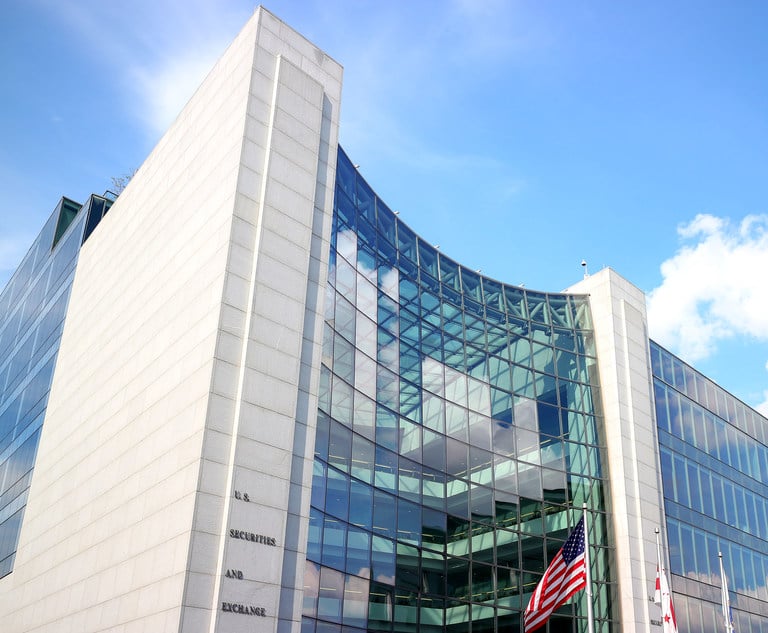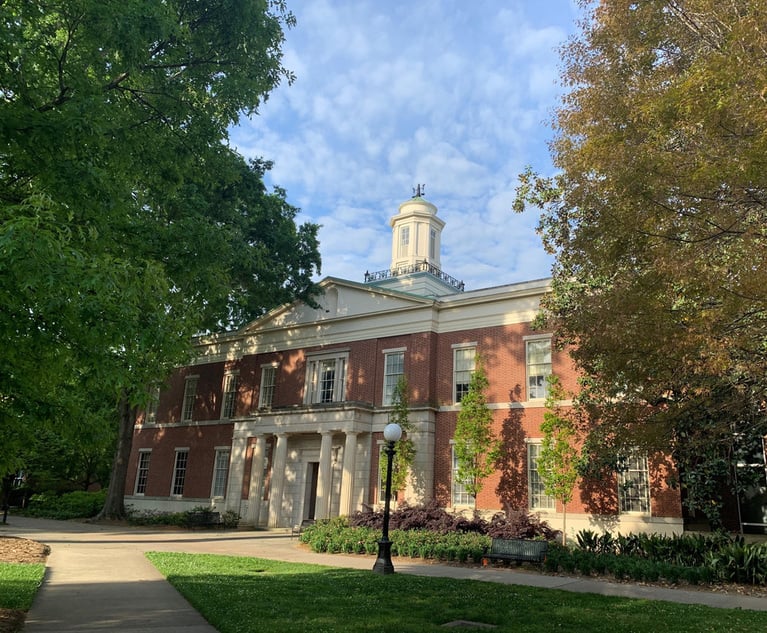
Want to get this daily news briefing by email? Here's the sign-up.
WHAT WE'RE WATCHING
FEDERAL SPENDING BOOSTS FIRMS – For signs that President Joe Biden's Build Back Better plan is still a possibility, at least in some form, look no further than where law firms are making their money. According to the documents filed as part of the requirements under the federal Lobbying Disclosure Act, law firms are still busy lobbying the government on behalf of clients in anticipation of new federal spending, Bruce Love reports. Such predicted spending includes not only some variation of the Build Back Better plan, but also the National Defense Authorization Act which is likely to pass later on this year. Some firms that have large lobbying practices in D.C., including Akin Gump Strauss Hauer & Feld, K&L Gates, and Brownstein Hyatt Farber Schreck, reported strong quarterly revenues, with many also predicting a busy second half of the year as legislative activity ramps up.
SCOTUS' PERCEPTION PROBLEM – Following a month which saw far-reaching and controversial Supreme Court rulings, the approval rating of the nation's highest court has dropped to a new low, according to a new Marquette Law School survey. Marcia Coyle reports that the survey found only 38% approve of the U.S. Supreme Court, with those having a "great deal/quite a lot" of confidence in the Court dropping to 28% this year, from 37% in 2019. Compared to three years ago, more survey respondents also believed that the Court's decisions were politically motivated, with more respondents describing it as "very conservative." Unsurprisingly in today's polarized climate, approval of the U.S. Supreme Court differed greatly depending on one's political affiliation.
11th CIRCUIT ALLOWS ABORTION BAN – The U.S. Court of Appeals for the Eleventh Circuit has lifted an injunction against a Georgia law that bans abortions after about six weeks of pregnancy, Katheryn Hayes Tucker reports. The unanimous ruling comes just weeks after the U.S. Supreme Court overturned the precedent set by Roe V. Wade. Attorneys who challenged the ban took aim at the court for staying the injunction rather than waiting the normal 28-day period for the issuance of an official mandate, arguing that the court "took this action on its own, without any request from the state, and outside of the normal court procedures." In the 16-page opinion, Chief Judge William Pryor used the term "abortionists" dozens of times rather than referring to "plaintiffs" or "appellees".
EDITOR'S PICKS
'It's a Marathon, Not a Revolution': Why Legal Departments' Shift of Work to India Won't Let Up
This content has been archived. It is available through our partners, LexisNexis® and Bloomberg Law.
To view this content, please continue to their sites.
Not a Lexis Subscriber?
Subscribe Now
Not a Bloomberg Law Subscriber?
Subscribe Now
NOT FOR REPRINT
© 2025 ALM Global, LLC, All Rights Reserved. Request academic re-use from www.copyright.com. All other uses, submit a request to [email protected]. For more information visit Asset & Logo Licensing.
You Might Like
View All
Librarian's Termination Violated First Amendment Protections, Lawsuit Claims
3 minute read
SEC Sued for Failing to Reveal Records Involving Simpson Thacher Attorney
3 minute read
PayPal Faces New Round of Claims; This Time Alleging Its 'Honey' Browser Extension Cheated Consumers

Law Firms Mentioned
Trending Stories
- 1Thursday Newspaper
- 2Public Notices/Calendars
- 3Judicial Ethics Opinion 24-117
- 4Rejuvenation of a Sharp Employer Non-Compete Tool: Delaware Supreme Court Reinvigorates the Employee Choice Doctrine
- 5Mastering Litigation in New York’s Commercial Division Part V, Leave It to the Experts: Expert Discovery in the New York Commercial Division
Who Got The Work
J. Brugh Lower of Gibbons has entered an appearance for industrial equipment supplier Devco Corporation in a pending trademark infringement lawsuit. The suit, accusing the defendant of selling knock-off Graco products, was filed Dec. 18 in New Jersey District Court by Rivkin Radler on behalf of Graco Inc. and Graco Minnesota. The case, assigned to U.S. District Judge Zahid N. Quraishi, is 3:24-cv-11294, Graco Inc. et al v. Devco Corporation.
Who Got The Work
Rebecca Maller-Stein and Kent A. Yalowitz of Arnold & Porter Kaye Scholer have entered their appearances for Hanaco Venture Capital and its executives, Lior Prosor and David Frankel, in a pending securities lawsuit. The action, filed on Dec. 24 in New York Southern District Court by Zell, Aron & Co. on behalf of Goldeneye Advisors, accuses the defendants of negligently and fraudulently managing the plaintiff's $1 million investment. The case, assigned to U.S. District Judge Vernon S. Broderick, is 1:24-cv-09918, Goldeneye Advisors, LLC v. Hanaco Venture Capital, Ltd. et al.
Who Got The Work
Attorneys from A&O Shearman has stepped in as defense counsel for Toronto-Dominion Bank and other defendants in a pending securities class action. The suit, filed Dec. 11 in New York Southern District Court by Bleichmar Fonti & Auld, accuses the defendants of concealing the bank's 'pervasive' deficiencies in regards to its compliance with the Bank Secrecy Act and the quality of its anti-money laundering controls. The case, assigned to U.S. District Judge Arun Subramanian, is 1:24-cv-09445, Gonzalez v. The Toronto-Dominion Bank et al.
Who Got The Work
Crown Castle International, a Pennsylvania company providing shared communications infrastructure, has turned to Luke D. Wolf of Gordon Rees Scully Mansukhani to fend off a pending breach-of-contract lawsuit. The court action, filed Nov. 25 in Michigan Eastern District Court by Hooper Hathaway PC on behalf of The Town Residences LLC, accuses Crown Castle of failing to transfer approximately $30,000 in utility payments from T-Mobile in breach of a roof-top lease and assignment agreement. The case, assigned to U.S. District Judge Susan K. Declercq, is 2:24-cv-13131, The Town Residences LLC v. T-Mobile US, Inc. et al.
Who Got The Work
Wilfred P. Coronato and Daniel M. Schwartz of McCarter & English have stepped in as defense counsel to Electrolux Home Products Inc. in a pending product liability lawsuit. The court action, filed Nov. 26 in New York Eastern District Court by Poulos Lopiccolo PC and Nagel Rice LLP on behalf of David Stern, alleges that the defendant's refrigerators’ drawers and shelving repeatedly break and fall apart within months after purchase. The case, assigned to U.S. District Judge Joan M. Azrack, is 2:24-cv-08204, Stern v. Electrolux Home Products, Inc.
Featured Firms
Law Offices of Gary Martin Hays & Associates, P.C.
(470) 294-1674
Law Offices of Mark E. Salomone
(857) 444-6468
Smith & Hassler
(713) 739-1250








